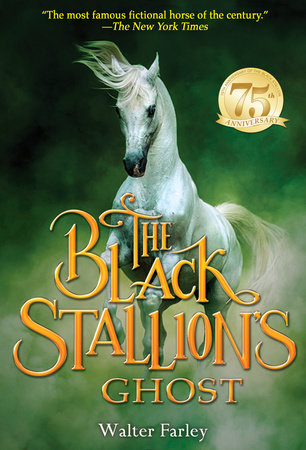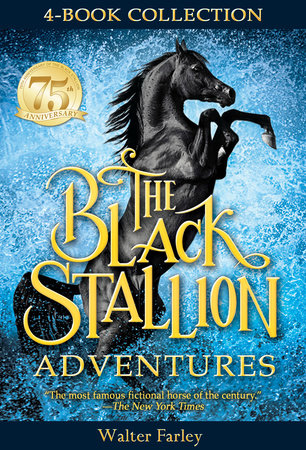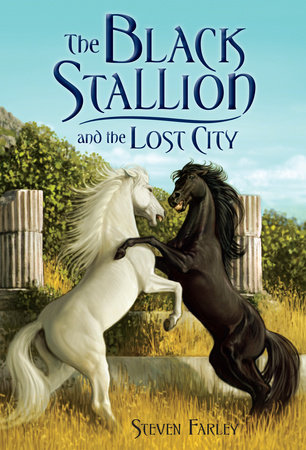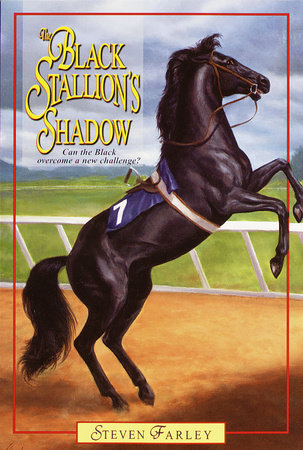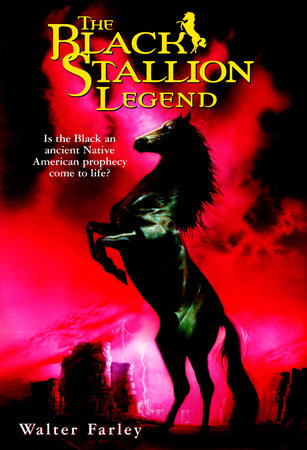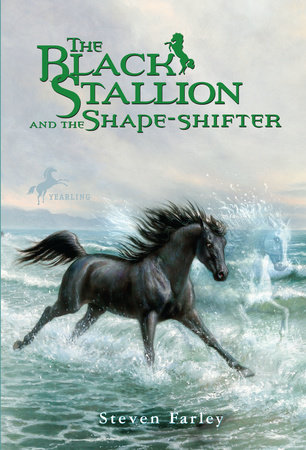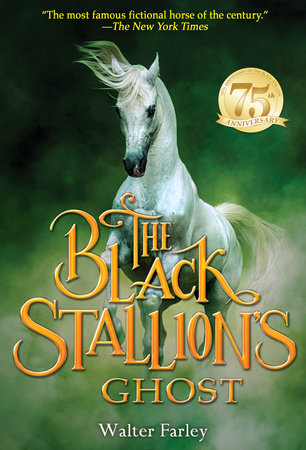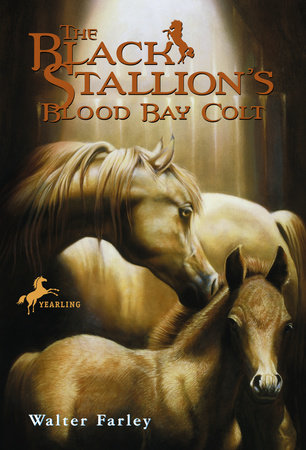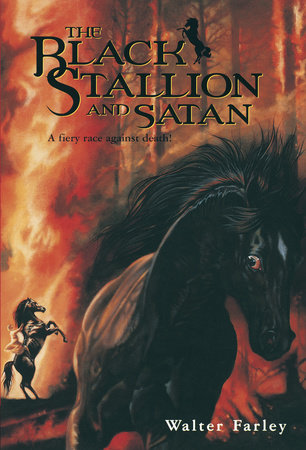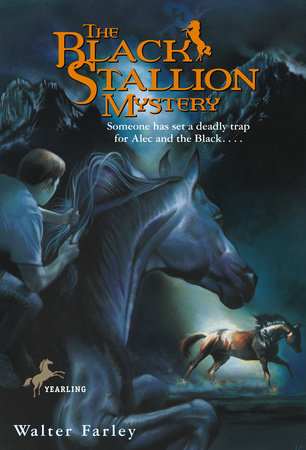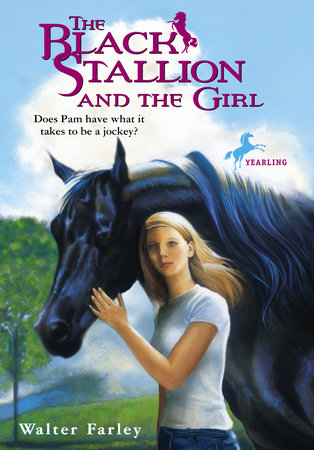Excerpt
The Black Stallion's Ghost
The man was almost invisible against the backdrop of the dark velvet curtain. His tall figure was clothed completely in black and his hair and skin were black as well. He raised a large and corded hand, one capable of great strength, to touch the silver-gray body of the mare beside him. His hand was so light upon her that he might have been touching a ghost.
She responded to his touch by a slight fluttering of her ears. It was enough for him to know that she was expectant and ready to enter the ring. He parted the stage curtain a bit in order to see the spacious hall and audience on the other side.
It was his first visit to Stockholm, Sweden, and he was impressed. The hall was more like a theater than quarters for a circus. Festively illuminated, it was a pleasing sight on that bitter-cold winter night. Red plush seats in ringside boxes and rear and side balconies rose to what seemed an incredible height. Every place was taken and all eyes were on the single ring where Davisio Castini and his bareback riding troupe were bringing their act to its finale.
The orchestra played a stirring march while the heavy horses thumped about the ring. The type did not appeal to him but he knew they had a place in the circus. He cared less for the feathered head plumes and jewel-studded breast collars they wore.
He touched his mare again and her ears pricked forward, awaiting his spoken command. There never would be any glittering ornaments on her, he promised himself. No plumes. No jewel-studded bridles. No colorful ribbons woven into her mane or tail. Nothing, not even a halter. By her movements alone she would overwhelm the audience.
He pressed closer against the curtain to avoid being seen. No emotion showed on his face; never had he allowed it to betray his feelings, in or out of the ring. Cold and masklike, and with deep-set unblinking black eyes, it resembled a piece of classic sculpture. Always he had sensed people's fear of him and, while he found it amusing, never attempted to change it.
The bareback act came to an end and there was a fanfare of drums from the orchestra, followed by a polite wave of applause from the large crowd. He listened and decided that, despite the air of festivity, the audience was as cold as the night outside.
Nervously, now that it was almost time for his mare to enter the ring, he removed a small gold figurine from his pocket and rubbed it gently. The growing warmth of the statuette in his large black hands gave him courage and confidence. He believed strongly in the powers of the small figurine, for his Haitian blood and heritage had made him more superstitious than most men.
The ringmaster, wearing frock coat and top hat, signaled him to be ready. "Bientot, ma cherie," he said quietly to his mare.
The fanfare of the trumpets cut the air once more. Then the shrill notes ended and the voice of the ringmaster rang through the spacious hall, as clear and commanding as the silver trumpets had been.
"Ladies and gentlemen and children," the ringmaster announced in Swedish, "the Circus Heyer takes great pleasure in presenting The Ghost. . . ."
As the horseman listened to the introduction, he thought of the great number of languages in which he had heard it given. For more than ten years he had traveled with different circuses throughout Europe, as far east as Siberia as well as to all the British Isles.
He knew little Swedish, but it made no difference, since the introduction was always the same. Like the music which would follow, he had composed it himself, so he and his mare always felt at home in whatever country they played.
There was a long pause as the lights in the great hall dimmed until the audience sat in almost complete darkness. This, too, he insisted upon wherever he played--ten seconds, at the very minimum, to silence the spectators and prepare them for the ethereal beauty of what was to come.
He slipped the thin leather halter off the mare's head, acutely aware of her readiness to obey every cue. He had no doubt that she looked forward to the gala stage on the other side of the curtain and the elegant audience that would be watching her.
The ringmaster had moved to the orchestra pit, leaving the ring in total darkness. "The Ghost," his introduction continued, "a god-horse, one no longer earthbound but of dancing fire, a winged Pegasus . . ."
The man holding the mare would have preferred it if the introduction had ended there. He wanted nothing more except complete silence and the darkness, followed by the first haunting notes of the music. However, the owner of the Circus Heyer, like most of the others he had worked for, insisted that his name be mentioned, since it was familiar to circus audiences throughout the world. He had given up arguing that it was only the mare's performance that mattered.
". . . A supreme exhibition of horse training directed by the world's first horseman in the art of dressage and haute ecole, Captain Philippe de Pluminel, formerly with the Cadre Noir of the French Cavalry School!"
"Entrez," the captain whispered softly to the mare. She went forward while he remained behind the curtain, his face showing no trace of nervousness or even excitement. He was a man in full command of himself and the horse in the ring.
Into the complete darkness and the silence came the first sounds of the music. It was faint, almost impossible to hear, and then it swelled, flowing throughout the hall. The captain could sense the rise in tension as the people waited for something to happen. They were under the spell of darkness and expectation.
He knew that few among them realized that his music had been composed to create just that feeling--that anything might happen. It faded away again to the faintest of sounds and, finally, stopped as abruptly as it had begun.
The captain smiled in the darkness. The audience was still silent, but he knew that they were growing apprehensive. They must be straining their eyes and ears for the faintest sound or movement from the ring.


